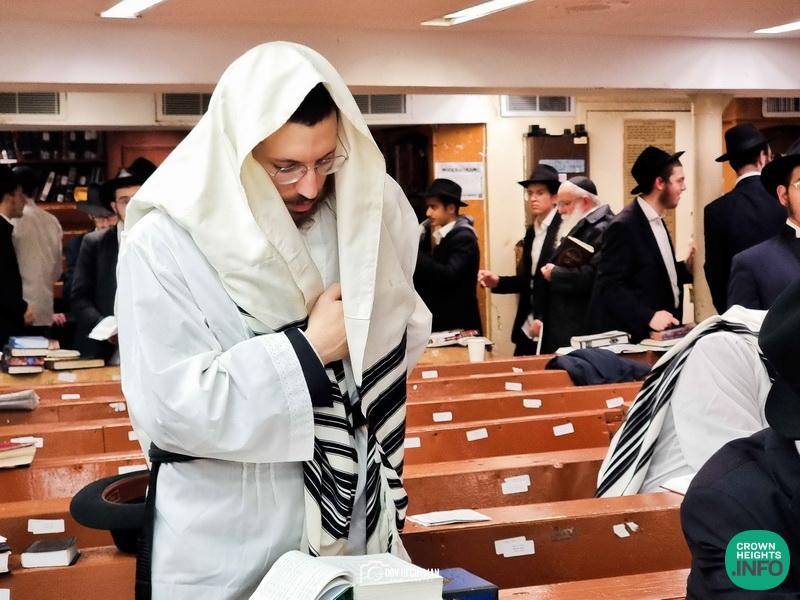
Weekly Dvar Torah: Yom Kippur – One Day, One Soul, One G-d
Jews have a unique relationship with rituals that transcend mere tradition. From dipping the apple in honey on Rosh Hashanah, lighting the Menorah on Chanukah, to dancing with the Torah on Simchat Torah, these practices help keep us grounded in our Jewish identity. On Yom Kippur, however, we fast—arguably the most difficult practice of the year. Yet, even Jews who might not engage in the rituals throughout the year somehow find themselves fasting on Yom Kippur. Why? Because that’s what Jews do. And on Yom Kippur, we are not just performing an ancient ritual; we are peeling away the layers that separate us from G-d.
The essence of Yom Kippur is about reconnection. It’s a day where we ask G-d for atonement and healing from the distance that has built up between us throughout the year. The fasting, the abstention from everyday distractions, is a way to strip away the physical and focus solely on the spiritual. It’s as though G-d says, “On this day, you and I will shine in our true essence, and all the stains will vanish.” The fasting helps us to experience this purity, allowing our Neshama (soul) to reconnect with its source—G-d Himself.
This essence of connection is what makes Yom Kippur so universally compelling. Even those who feel disconnected from Judaism for much of the year cannot help but acknowledge the pull of Yom Kippur. It’s not about understanding the rituals or mastering the prayers. It’s about the inherent bond that every Jew has with G-d, a bond that transcends knowledge, language, or ritual. As Hitler, our greatest enemy, once observed, the Jewish soul exerts its influence even without the outward trappings of Jewish education or synagogue attendance. The Jewish spirit is eternal, and on Yom Kippur, this truth is undeniable.
This point may be illustrated by a story I heard in the name of the legendary Rabbi Shlomo Schwartz, also known as Schwartzie, that he was approached by the chief doctor in a local mental institution, who asked him why is it that every year around Yom Kippur there is an uptick in admissions of people of the Jewish faith? All Schwartzie can think of, was that the inner conscience, the soul of every Jew has an awakening and when one doesn’t know how to handle it, it affects their mental health.
On Yom Kippur, we return to G-d, but in reality, consciously or subconsciously we are returning to ourselves—our essence, which is one with G-d. The day is about forgiveness, but not just in a legal sense. G-d forgives because, at our core, we are part of Him. Since when does someone not forgive themselves? G-d welcomes us back like a parent embracing a child, with unconditional love.
The stories of Jews reconnecting with their essence throughout history give us powerful glimpses into this relationship. One story from the Soviet army tells of Zalman Bronshtein, a Jew drafted during WWII. Faced with the command to sing on Yom Kippur, he pretended to lose his voice rather than desecrate the day. But in a twist, three fellow Jewish officers approached him in secret, asking him to sing Kol Nidrei, the holiest prayer of the day. In the depths of the forest, away from the horrors of war, Zalman poured his heart into the prayer, connecting to G-d in a moment of intense vulnerability. The three men, who had likely hidden their Jewish identities out of fear, wept as they felt their souls reconnect with their source.
Then there’s the story of Reb Mendel Futerfas, a prisoner in the Soviet Gulag, who prayed secretly on Yom Kippur. As he questioned whether all Jews truly believed in G-d, a fellow prisoner appeared, and instead of reporting him, joined him in prayer. This man could only remember the simple words his mother had taught him as a child: “Modeh Ani,” a morning prayer of gratitude. In that moment, Reb Mendel realized that every Jew, no matter how far removed from Judaism, carries a spark of belief deep within.
Yom Kippur is the culmination of 40 days of Teshuva, a spiritual return home. On this day, G-d welcomes us into His embrace, wherever we may be—whether in a packed synagogue or alone at home. This year, especially with so many feeling abandoned and isolated, it’s a reminder that we are never truly alone. We have an intimate connection with G-d that transcends time and space. We don’t need a grand setting to experience this connection. Like Reb Zalman in the forest, sometimes being alone with G-d brings a deeper sense of intimacy, allowing us to reflect, speak from the heart, and ask for a sweet New Year.
As the day of Yom Kippur comes to a close, we don our white garments, symbolizing our angelic purity, and blow the Shofar in a final triumphant blast. This marks the end of our Neila service, and we march forward with confidence that G-d has sealed us for a year of sweetness, health, and blessings. In this final moment, we acknowledge that we are not just forgiven but embraced, provided for, and loved by G-d—our Creator, our Father, and our Source.
So, as we enter Yom Kippur, let us remember that this is the day we come home. We return not only to G-d but to our truest selves, stripped of all distractions and imperfections. May this Yom Kippur be one of deep connection, where we each reconnect with our essence, and may we all be sealed in the Book of Life for a Sweet and Happy New Year, a Year of Geulah.
Have an easy fast,
G’mar Chasima Tova!
Rabbi Yosef Katzman











